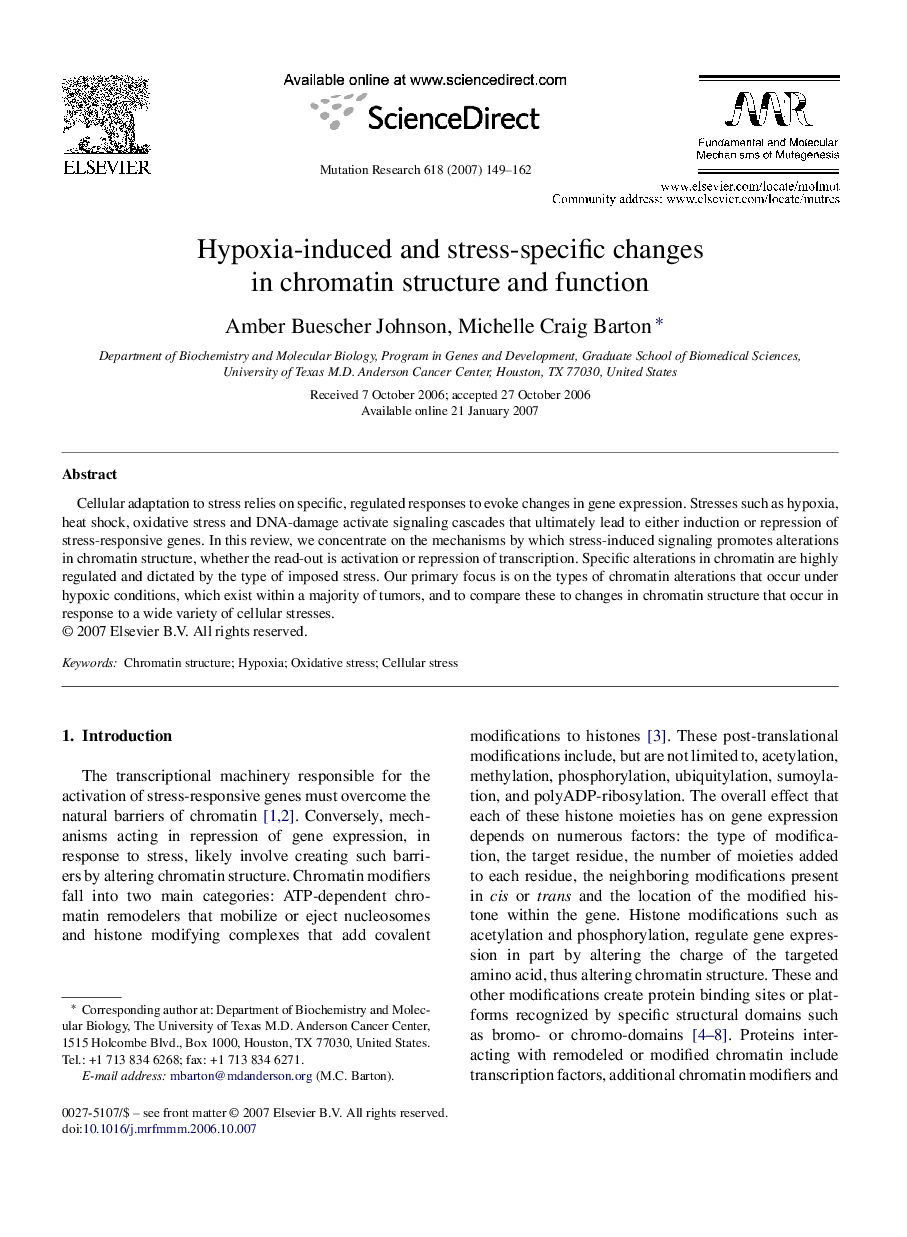| Article ID | Journal | Published Year | Pages | File Type |
|---|---|---|---|---|
| 2147467 | Mutation Research/Fundamental and Molecular Mechanisms of Mutagenesis | 2007 | 14 Pages |
Abstract
Cellular adaptation to stress relies on specific, regulated responses to evoke changes in gene expression. Stresses such as hypoxia, heat shock, oxidative stress and DNA-damage activate signaling cascades that ultimately lead to either induction or repression of stress-responsive genes. In this review, we concentrate on the mechanisms by which stress-induced signaling promotes alterations in chromatin structure, whether the read-out is activation or repression of transcription. Specific alterations in chromatin are highly regulated and dictated by the type of imposed stress. Our primary focus is on the types of chromatin alterations that occur under hypoxic conditions, which exist within a majority of tumors, and to compare these to changes in chromatin structure that occur in response to a wide variety of cellular stresses.
Related Topics
Life Sciences
Biochemistry, Genetics and Molecular Biology
Cancer Research
Authors
Amber Buescher Johnson, Michelle Craig Barton,
